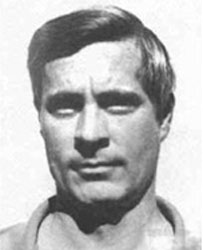Peter Griffin was among famous blackjack players added to the blackjack Hall of Fame list. However, he was not a player; he was an intelligent professor in math, developing his theory of playing blackjack, but did not use it in practice.

Background
Born in 1973 in New , Peter Griffin grew in Pennsylvania. He was very talented and smart boy. He graduated from Portland State University and got Bachelor's degree there, afterwards he gained his master's degree in Californian University.
After obtaining Masters of Art he began teaching math and in 1977 he was already the professor. He taught students for many years such courses as algebra, calculus, statistics as well as differential equations.
Blackjack and Professor
During his teaching in University, Peter Griffin was preparing to his studies and wanted to try one of his theories in mathematics of gambling. In order to do this, he entered the casino in Nevada and lost all his savings and got unbearable sake for revenge.
Griffin started learning blackjack game, rules, and strategies and wanted to create his way of playing to win in casinos. He tried to find mathematical way of playing. So what was his contribution to blackjack history that he was added to Blackjack Hall of Fame? Peter Griffin wrote his book called The Theory of Blackjack. It became the most popular book after Beat the Dealer by Edward O. Thorp.
Griffin's book is considered to be more comprehensive comparing to Thorp's book due to the more accurate and complete basic blackjack strategy for various numbers of decks as well as for any set of rules. Griffin explained the basic strategy from the view of mathematic, as it actually stands behind blackjack strategy & card counting systems.
It is worth mentioning that Peter Griffin book can't be understood by everyone as it was written for those having deep understanding of math. Otherwise, it will be hard to get to the point of the book.
Griffin is very honest man and he even wrote in the introduction to the book that he didn't win big with the help of his math strategies and, moreover, he even lost more than won.
His book describes perfectly the theory of playing blackjack, but the author left for players to apply it in practice.




